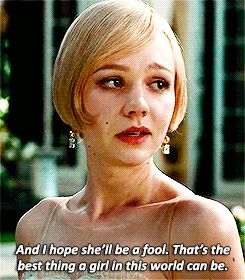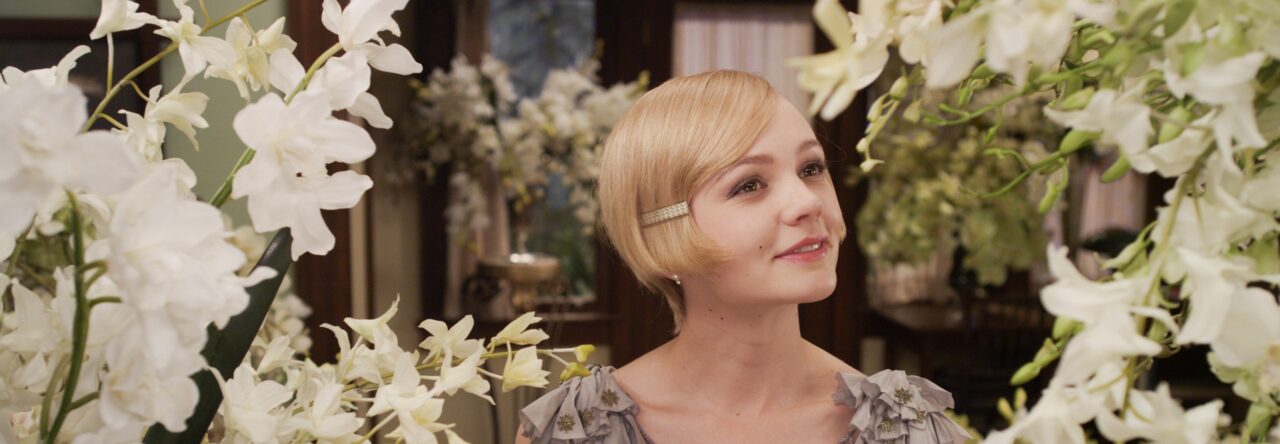
Daisy Buchanan is not only famous for her old-money beauty and her role in the story of Jay Gatsby, her fame is also accredited to one of her most famous quotes in The Great Gatsby.
“And I hope she’ll be a fool—that’s the best thing a girl in this world can be, a beautiful little fool.”
On the surface, especially to older men in my experience when discussing Daisy, this statement may portray Daisy as a carefree, shallow woman who embraces the sexist and submissive role society places onto women. However, I think there’s a lot more to this than what we can observe on the surface level. I think Daisy is incredibly intelligent because she said that. Daisy is aware of the world and the expectations that surround her. Her saying that can be interpreted as a bitter commentary on 1920s America and its limited mobility for women.
When Daisy says that in The Great Gatsby, she is talking about her daughter to Nick. She expresses her joy that her child was born a girl then continues to wish that she turns out to be a beautiful little fool. However, she is not only talking about her daughter; she is also talking about herself. In the 1920s, or any era before feminism swept the country in the way we see it now, women—especially wealthy women—were expected to be accessories. They were supposed to be decorative, mindlessly tolerant, and quiet. Any form of intelligence or a whiff of ambition did more harm than good to a woman back then. Their lives became more difficult rather than better due to the iron-clad grip and oppressive aura of the patriarchy during that era. So when Daisy voices her hope for her daughter to be a “fool,” it’s not because she values ignorance. It’s because she recognizes and surrenders to the reality of it being the only way to survive and sustain a luxurious lifestyle with little to no suffering.
Rather than being a “fool” herself, Daisy is playing her assigned role on a stage with patriarchy as the lead. She knows her beauty gives her influential power, but that power is very fragile and conditional. Acting carefree, naive, detached, and adopting a foolish nature protects her. Her charm, laughter, and lightheartedness are all just features of her act. Her performance is what keeps her in good graces with the men that surround her all while masking the disillusionment she is feeling underneath her mask.
Daisy’s awareness becomes even more apparent as the novel progresses. For example, she chooses to stay with her husband, Tom Buchanan, despite his cruelty, infidelity, and careless nature towards her. If she left him, that would mean that she would lose the fruits of her labor. She would lose her social standing and stability. Her return and decision to stay with Tom was not out of love; it was out of necessity and survival because she has no personal agency outside of a marriage with a man like Tom.
When Daisy gets the labels of “shallow,” “foolish,” and “careless,” we tend to miss the bigger, implied nature of Daisy. Her “beautiful little fool” comment was rooted in mournful surrender. It’s a critique. She knows the world doesn’t reward women for their personal, independent achievements. Her wisdom is very tragic; she understands the era and environment she lives in and chooses to go along with it.
Daisy is far from being a fool. She is one of the most self-aware characters in The Great Gatsby. Her tragedy in the novel, alongside the other women who mirror her story in the real world, is that she is smart enough to know the truth, but she is powerless to do anything about it.
Bibliography
Fitzgerald, F. Scott. The Great Gatsby.

Leave a Reply
You must be logged in to post a comment.